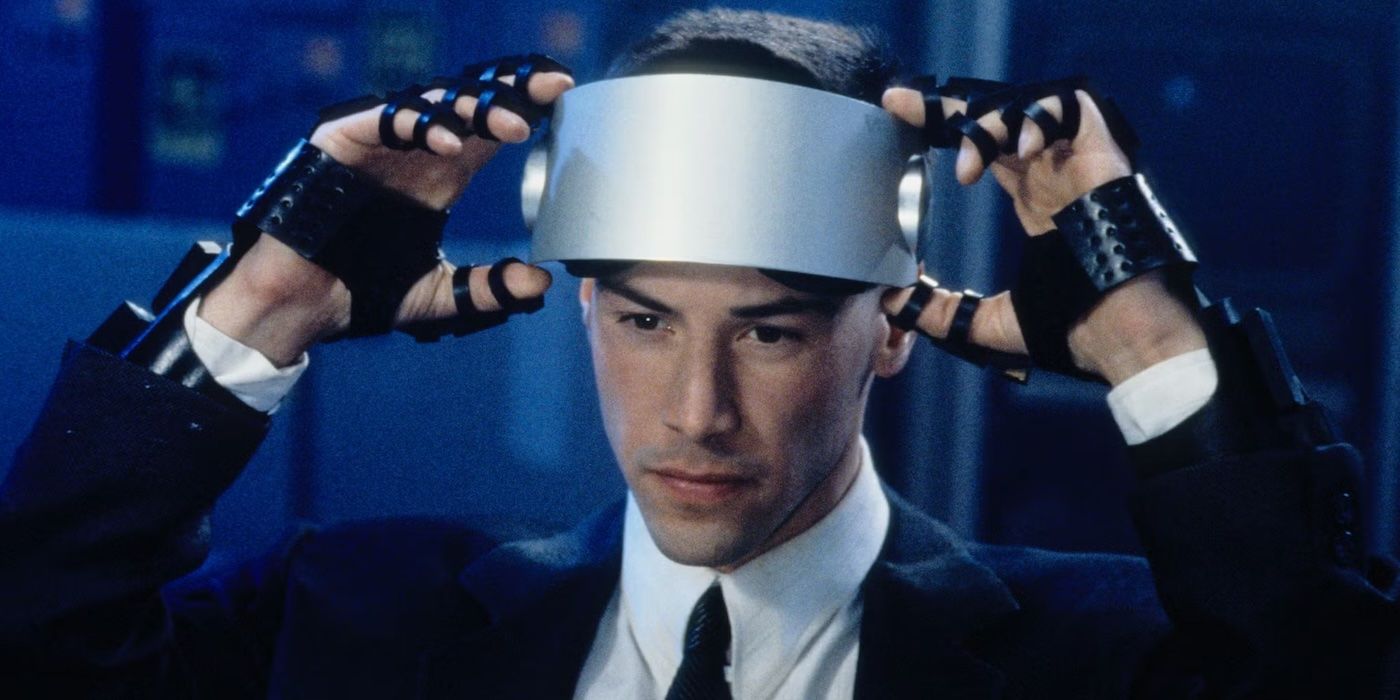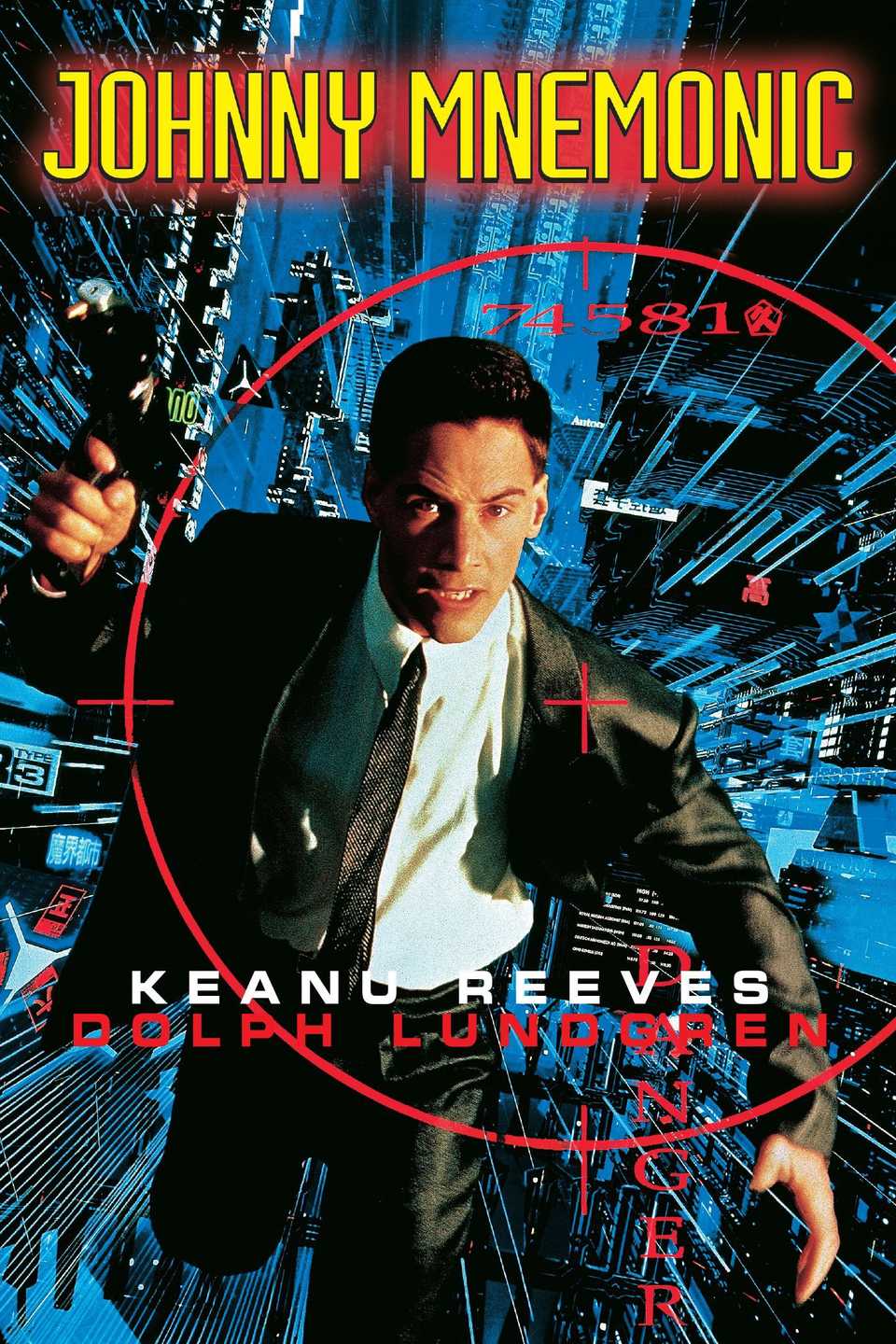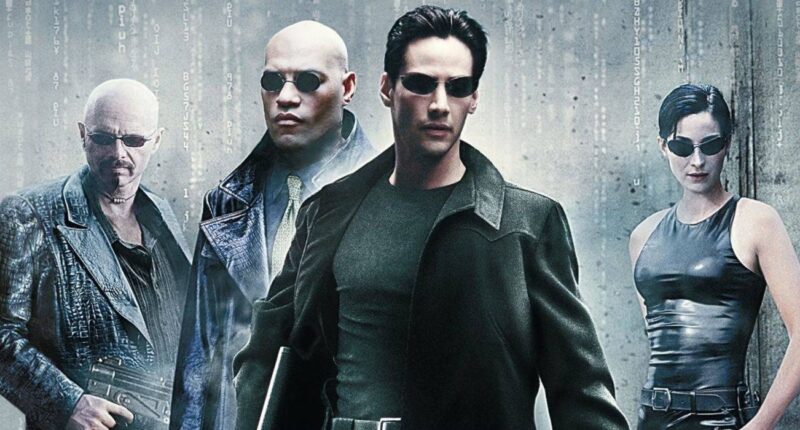Keanu Reeves has racked up plenty of iconic roles over the course of his career, whether it’s as half of the titular time-traveling slackers in Bill & Ted’s Excellent Adventure or a one-man killing machine in the John Wick films. His biggest claim to fame though would be The Matrix, where he played computer hacker Thomas Anderson — reborn as the digital savior Neo. The Matrix wound up defining a generation of science fiction and fantasy films, but it wasn’t the first time that Reeves played a major role in a cyberpunk story. That honor goes to Johnny Mnemonic, which celebrates its 30th anniversary this year. Based on the short story by William Gibson, Johnny Mnemonic displays plenty of the same cutting-edge storytelling that shaped The Matrix.
‘Johnny Mnemonic’ Paints the Picture of a Future That’s Staggeringly Close To Our Own
Johnny Mnemonic takes place in a future where humanity utilizes the Internet for most of its interactions, with a dangerous cost: too much screen time will lead to neural degeneration. Enter Johnny (Reeves), who earns a living trading data to the megacorporations that run the world. Johnny’s latest assignment sees him downloading an immense amount of data, and if he doesn’t offload it in a few days, his brain will overload. What makes matters worse is that multiple groups of people, including the assasin nicknamed the Street Preacher (Dolph Lundgren) and Yakuza leader Takahashi (Takeshi Kitano). While Johnny Mnemonic is set in a world with cyborgs and flying cars, most of its predictions about the future came true.
A major example is the fact that the “nerve attenuation syndrome” affecting mankind is treated as a pandemic, and a large part of the data Johnny’s carrying contains a cure for it that the corporations of the world refuse to let out because it will mess with their profits. It also takes place in the year 2021; while there aren’t any cyborgs or flying cars in the world right now, the COVID-19 pandemic had a massive effect on how people communicated, and that was mostly through the internet, whether it was Zoom calls or Discord servers. Another way Johnny Mnemonic was ahead of the curve was the prediction of the “Google Effect”. In the same way that storing information in people’s minds in the movie led to their brains melting down, there’s now a condition where people only remember where they looked up information, not what they were looking for. Considering the reception to Johnny Mnemonic, it’s surprising that it managed to get a lot about the future right.
‘Johnny Mnemonic’ Dealt With Studio Interference Due To Keanu Reeves’ Rising Star
Johnny Mnemonic was originally meant to be a small-scale film, thanks to William Gibson expanding upon his original short story for the screenplay and director Robert Longo wanting to make an art film. Sony originally was on board, even going with Reeves when Val Kilmer — a bigger star at the time — dropped out of the running to play Johnny. None of them could have predicted that Speed, the high-octane thriller starring Reeves, would become a smash hit. As a result of Speed‘s success, Sony tried to retool Johnny Mnemonic into a major blockbuster despite Longo and Gibson’s objections. Gibson expressed his disdain with Johnny Mnemonic being edited into a more mainstream product, but Longo was far more blunt: “It was f—ing horrible. Johnny Mnemonic is about 65 percent of what I hoped it would be.”
The rest of the world seemed to agree, as Johnny Mnemonic is often considered the worst film of Keanu Reeves’ career and bombed hard at the box office. In a major twist, it turns out that The Matrix actually drew inspiration from Johnny Mnemonic, as Lana & Lily Wachowski used it in presentations to win over investors. Reeves would also continue to star in cyberpunk-inspired media with Cyberpunk 2077, which features a plot involving him haunting the player as a digital ghost. Johnny Mnemonic might not have turned out like anyone expected, but it’s had a surprising impact on Keanu Reeves’ career.

Johnny Mnemonic
- Release Date
-
May 26, 1995
- Runtime
-
96 Minutes
- Director
-
Robert Longo









